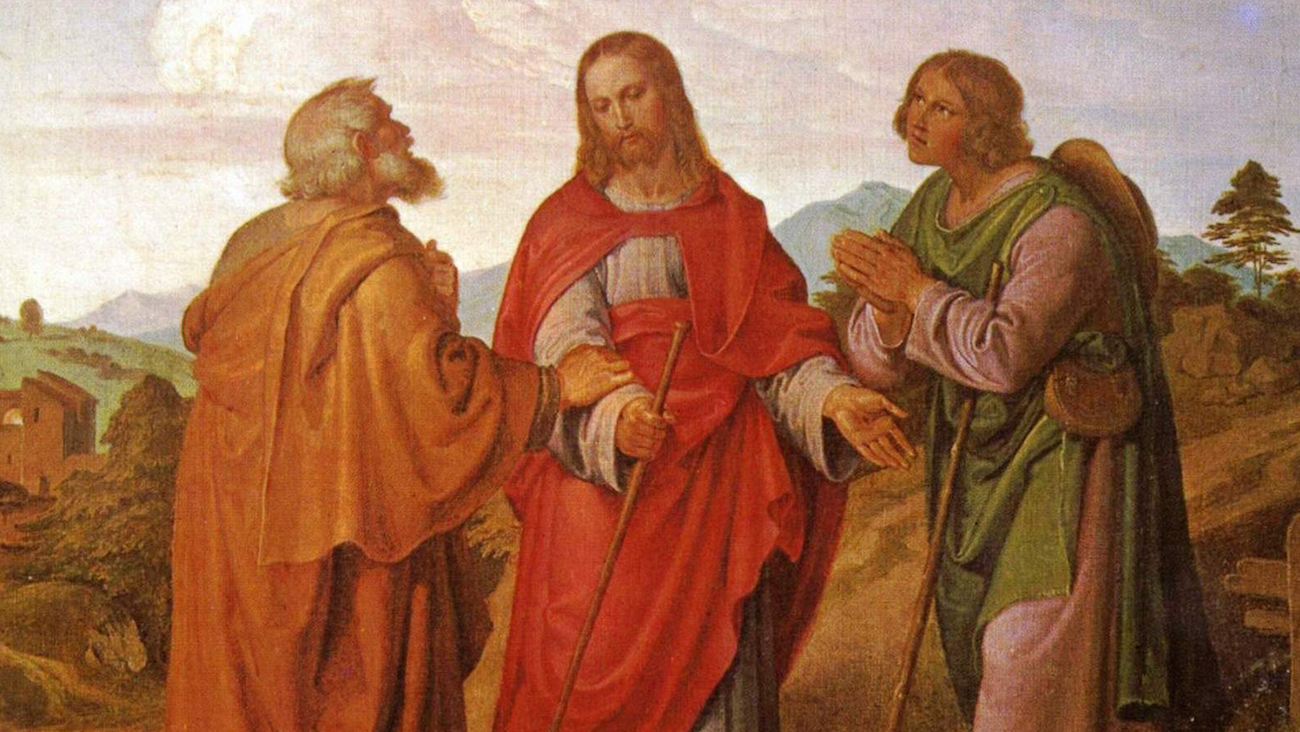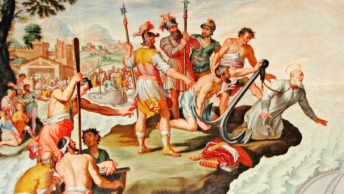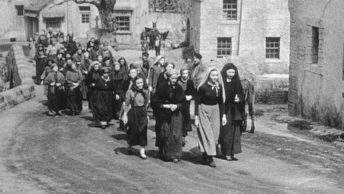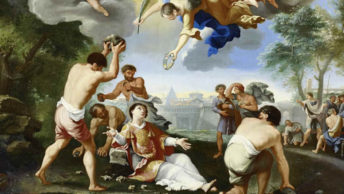All my life I’ve heard the stories regarding those speaking to Jesus at the tomb. Like Mary Magdalene before them, Cleopas and a “friend” encounter the risen Jesus on the road to Emmaus and do not recognize him. All the times I’ve heard these stories, I’ve wondered how it could be that Jesus’ associates did not identify him. Luke tells us that their eyes are “prevented from recognizing him.”
The notion of having their eyes blinded is not new to the Bible. I hold it in the same regard as God putting obstinacy in the path of Pharaoh prior to the Exile. Yet, every time I hear these passages after Easter I can’t help wondering how Jesus wasn’t recognized. Think about it. The disciples of Jesus witnessed such marvels during his three-year ministry. These events, let alone the man who orchestrated them, are not easily forgotten. A figure who was such a key person in their lives they now did not recognize. His friends witnessed, or at least knew of, his trials and by Saturday they were disillusioned. They were scared that they could be next. But on Sunday, that glorious Sunday, they heard the news of the Jesus’ resurrection. Cleopas details it for Jesus:
“Are you the only visitor to Jerusalem who does not know of the things that have taken place there in these days?” And he replied to them, “What sort of things?” They said to him, “The things that happened to Jesus the Nazarene, who was a prophet mighty in deed and word before God and all the people, how our chief priests and rulers both handed him over to a sentence of death and crucified him. But we were hoping that he would be the one to redeem Israel; and besides all this, it is now the third day since this took place. Some women from our group, however, have astounded us: they were at the tomb early in the morning and did not find his body; they came back and reported that they had indeed seen a vision of angels who announced that he was alive. Then some of those with us went to the tomb and found things just as the women had described, but him they did not see.” (Luke 24:18-24)
Luke tells us Cleopas and his “friend” were disillusioned. Perhaps they were even going home in defeat. Some scripture scholars believe that the “friend” mentioned in Luke’s Gospel was his wife. As such, in that era she would not have been a reliable witness and therefore, there was no need to mention her by name. In truth, the identity of this friend is lost to antiquity. We do know however, that many more people than the 12 disciples and the women of Jerusalem followed and saw the risen Jesus.
The English translation of the story says “early in the morning.” Could it have been that same day as Mary discovers the empty tomb that Cleopas meets the resurrected Jesus? Was it possibly not even 24 hours having passed when they heard news of his resurrection that they were leaving Jerusalem disillusioned? It wasn’t until my prayer group lectio divina discussion on the Emmaus story did I even realize that the events with Cleopas could have taken place so soon after the discovery of the empty tomb. I had always imagined it was days or weeks afterward. Luke does not date the event for us.
When my father died, I caught myself looking into crowds to see if I would recognize if he was there. There was no way, if presented at any age over 12 years old, that I would not have recognized my father. Thinking about this and reflecting on the Emmaus passage, perhaps I am looking at it all wrong. I realize how many times I don’t recognize Jesus in my life. I get so focused on the issues at hand that I fail to see Jesus in my midst. I’m pretty great at seeing Jesus on Sunday. I struggle to see him in my secular world that I live in Monday through Saturday. Especially during my times of crisis, as my emotions and anxiety rise high and, while I could recognize Jesus, I certainly don’t take the time to look for him as I should. Being caught up in the moments of my life he could be standing right before me and I would unknowingly look past him. That is a real danger in 2017. As we blind ourselves to the world, as we listen to iTunes and not the cries of the poor, we blind ourselves to Jesus in our midst.
Like Cleopas, I get caught up in my disillusionments to a point where I don’t even look for Jesus. And like Cleopas, I have heard of his resurrection. I believe in his teachings. Looking back on the events of my life it is not hard to see all the times I needed Jesus to come show me the way. I am reminded of all the times when I saw “the way” only to lose it by returning to get caught up in my life again. How glorious it is that we have a God who waits for us. Instead of my wondering how they could not have recognized Jesus, perhaps my time would be better spent focusing on all the times I failed to recognize him as well.
The point of Luke’s Gospel story of Jesus talking with travelers on the road the road to Emmaus is not focused on the masking of Jesus’s identity. It tells us how Jesus explained how he was the fulfillment of Scripture. It was to show us how today, as it was 2000 years ago, that we can still find him “in the breaking of the bread.” This passage shows us the parallel of this story to Sunday mass. Each week we read the Scriptures and have them explained to us. The community is then brought together with Jesus in the Eucharistic bread.
This has been his 2000 year gift to us. May we learn to overcome our immediate concerns, may we regain our heavenly focus to recognize Jesus in our lives and in the “breaking of the bread.” Cleopas saw and came to believe. We must as well.








